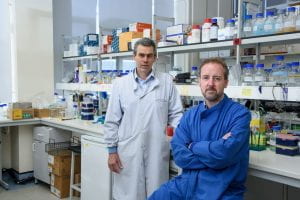A national research project to study the effects of emerging mutations in SARS-CoV-2 has been launched. The £2.5 million UK Research and Innovation (UKRI)-funded ‘G2P-UK’ National Virology Consortium will study how mutations in the virus affect key outcomes such as how transmissible it is, the severity of COVID-19 it causes, and the effectiveness of vaccines and treatments.
The Consortium will bring together leading virologists from ten research institutions including Drs Andrew Davidson and David Matthews from the University of Bristol. They will work alongside the COVID-19 Genomics UK (COG-UK) consortium, which plays a world-leading role in virus genome sequencing, and Public Health England to boost the UK’s capacity to study newly identified virus variants and rapidly inform government policy.
The consortium is led by Professor Wendy Barclay, from Imperial College London, who said: “The UK has been fantastic in sequencing viral genomes and identifying new variants – now we have to better understand which mutations affect the virus in a way that might affect our control strategies. We are already working to determine the effects of the recent virus variants identified in the UK and South Africa and what that means for the transmission of SARS-CoV-2 and vaccine effectiveness.”
Bristol will be leading on the application of synthetic biology approaches to engineer synthetic pesudovirus platform technologies to probe virus infectivity.


